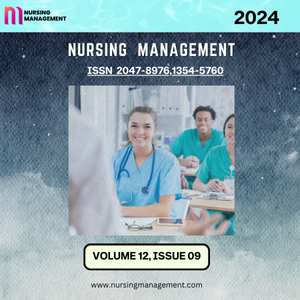Menu
Volume 10 Issue 3
Nursing Professional Self-Concept: A Scoping Review Protocol
Inês Franco Almeida,Rafael Alves Bernardes,Liliana Baptista Sousa,Paulo Santos-Costa,Rosa Silva,Joana Bernardo,Elaine Santana andAmorim Rosa
1The Health Sciences Research Unit: Nursing (UICISA: E), Nursing School of Coimbra (ESEnfC), 3004-011 Coimbra, Portugal
2Portugal Centre for Evidence-Based Practice: A JBI Centre of Excellence (PCEBP/JBI), 3000 Coimbra, Portugal
Author to whom correspondence should be addressed.
Abstract
Nurses are considered one of the largest professional groups in healthcare, generating positive health outcomes for people at various stages of life. A significant impact on the construction of the professional self—or professional self-concept—is considered to exist through the educational process, influenced by factors such as the family and societal expectations often presented by teachers, tutors, and peers. Improving professional self-concept in nursing can offer specific gains in personal, relational, social, and interpersonal communication skills, favoring evolution in the academic and clinical path. This scoping review aims to map the literature related to the state of knowledge regarding professional self-concept in nursing. This scoping review will follow JBI recommendations with the PCC mnemonic and report its findings through PRISMA-ScR using a specific instrument made by the researchers. Providing healthcare complying with high scientific standards requires the professional to have enough self-confidence in his work and skills. The explicit acknowledgement of professional self-concept is essential for any educational tutor or experienced mentor to promote mental health and academic and professional performance.
Keywords: nursing; professional self-concept; nursing students; nurses; scoping review
Editorial Board
Editor-In-Chief
Christopher J. Hayes, University of California, BerkeleyCalifornia
Associate Editors
David P. Williams, Johns Hopkins University
Sophia L. Brooks, University of Sydney
Arjun K. Mehta, University of Cambridge
Isabella S. Johnson, University of Toronto
Eli T. Garcia, University of Oxford
Grace M. Lewis, Stanford University
Mason R. Chen, University of Melbourne

